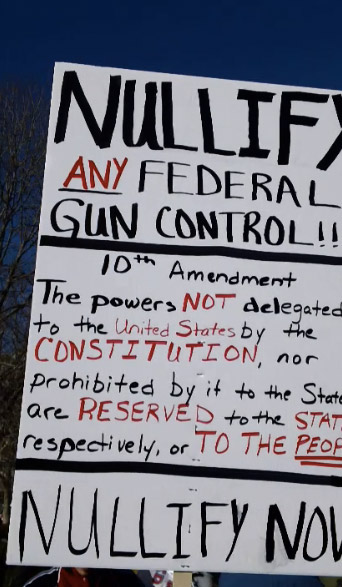Colorado Pols is recapping the top ten stories in Colorado politics from the 2012 election year.
In 2010, riding the crest of a “Republican wave” in a midterm election trending against the party of President Barack Obama, Colorado Republicans took back control of the state House of Representatives for the first time since their historic loss of legislative control in 2004. Colorado Republicans still couldn’t match the success enjoyed by the GOP in federal races, retaking the state House chamber by a single seat in an extremely close suburban Denver House race ultimately decided by a margin of fewer than 200 votes.
Still, after solid Democratic control of both chambers for six years, and a Democrat in the Governor’s Mansion for four of those years, the GOP had finally regained a foothold on power.
Which they proceeded to squander in historic fashion, accomplishing nothing except further damage to the Republican brand, and leading directly to the Colorado House flipping right back to Democrats in November of this year.
The blame for this failure lies squarely with former Republican House Speaker Frank McNulty and his team of GOP House leadership. As Speaker, McNulty quickly established a reputation for Machiavellian game playing. Just as one example, at the end of the 2011 session, McNulty’s last-minute manipulation of normally-routine rules legislation to undo payday lending reforms passed by the previous Assembly turned into a front-page controversy, and a very public defeat for House Republicans–not to mention unpopular payday lenders.
It’s possible, however, that the beginning of the end for McNulty came during the work of the state legislative reapportionment commission. After the commission came together on a bipartisan-approved new map of Colorado’s state House and Senate districts, McNulty and Republican leadership ill-advisedly chose to appeal those maps to the Colorado Supreme Court. Though the maps were successfully remanded to the commission, Republicans had managed to totally alienate the independent chairman of the commission, Mario Carrera. The final maps faithfully met the tests the Supreme Court laid out–in ways that were worse for Republicans.
Following these setbacks, many Republican donors and activists were already running out of patience with McNulty as the 2012 session began. Recognizing important shifts in voter opinion on issues that had traditionally served as GOP wedges to turn out socially conservative voters, some Republicans began agitating for an end to resistance on matters like civil unions for gays and lesbians, and accessible tuition rates for undocumented students in the state.
McNulty ignored them. Even as members of his one-seat majority GOP caucus began to announce their support for civil unions legislation, McNulty gave only token and cryptic lip service to the idea of giving the bill a fair shot in his House. The ASSET legislation for undocumented students died, though with much wider coverage in the press–including Spanish language press–than in previous years.
On the final day of the 2012 legislative session where bills could be debated and still passed before sine die, McNulty was faced with a dilemma: there were enough votes, from Democrats and Republicans, to force civil unions to the floor for approval–where it would pass with several Republicans voting in favor. Rather than allow that to happen, McNulty used his authority as Speaker to shut down debate in the House–killing not just the civil unions bill, but dozens of other uncontroversial pieces of legislation. This action was almost universally condemned in the media, and resulted in a rare expenditure of political capital by an emotional Gov. John Hickenlooper to call a special session to reconsider civil unions. McNulty unceremoniously directed the reconsidered bill in special session to his “kill committee,” and that was that.
It’s likely that McNulty really didn’t think this would matter in the elections a few months later–wouldn’t matter, or might perhaps benefit Republicans by motivating socially conservative voters. But he couldn’t have been more wrong. In addition to the major shift in public polling from opposition to strong support for civil unions in the last few years, McNulty’s extraordinary actions to kill civil unions enraged wealthy Democratic supporters of marriage equality like philanthropist Tim Gill–not to mention the Republicans who had been calling for passage. It’s generally believed that the death of civil unions motivated Gill and others to strike back harder in key Colorado legislative races, with the goal of ending McNulty’s control of the Colorado House.
In the aftermath of the Democrats’ retaking of the House, McNulty did not even seek any GOP leadership position, although rumors he might resign his seat entirely did not come true. Democrats were aided in their efforts by what appears to be yet another round of low quality, under-vetted candidates for which McNulty also must bear responsibility. In 2010, candidate vetting proved a major problem for the GOP, and certainly contributed to them barely retaking control of the House. For candidates referred to by GOP leadership as “rising stars” this year to be exposed in the press for all kinds of trouble in their records–trouble that somebody should have known about–strongly points toward incompetence at the top.
In only two years, Frank McNulty’s mismanagement of the Colorado House played a big role in turning the closest Republicans have had to a comeback–after years of being humiliated in a state they used to own–into a fresh lesson on why they are losing here so consistently.


 FOX 31’s Eli Stokols
FOX 31’s Eli Stokols 